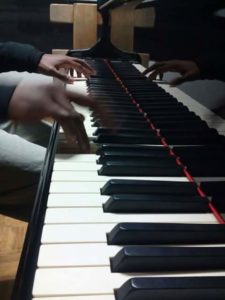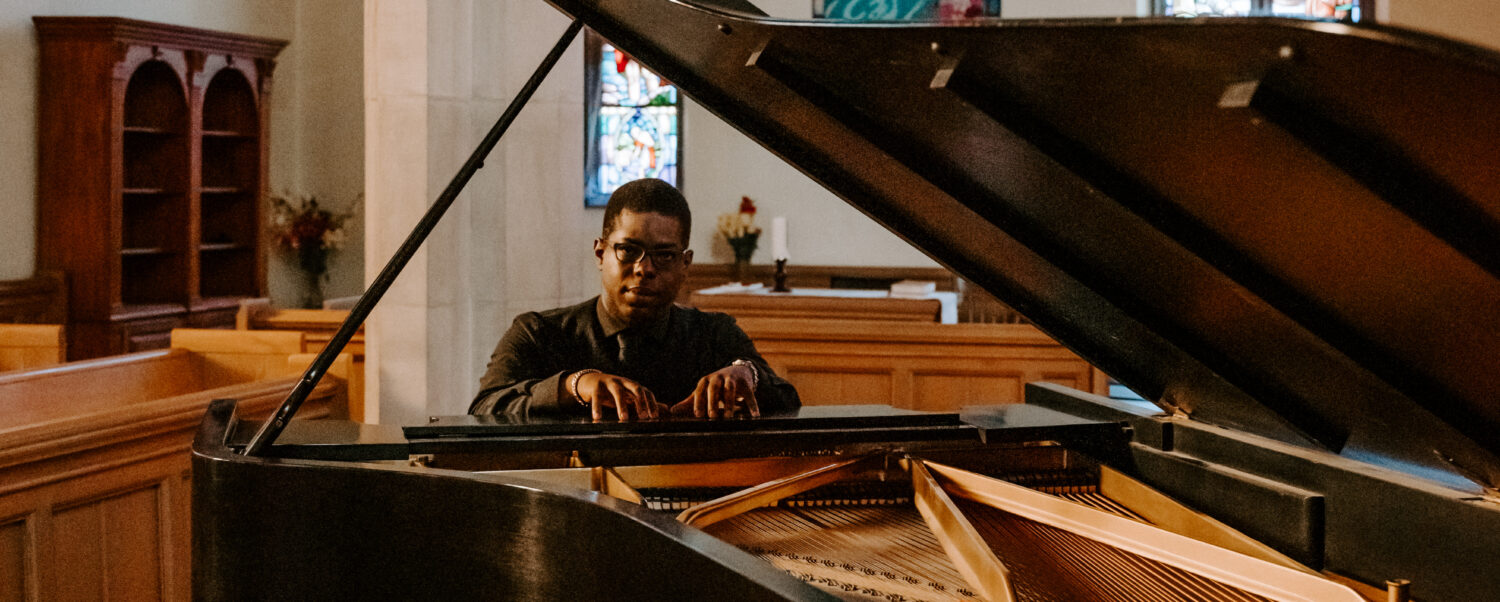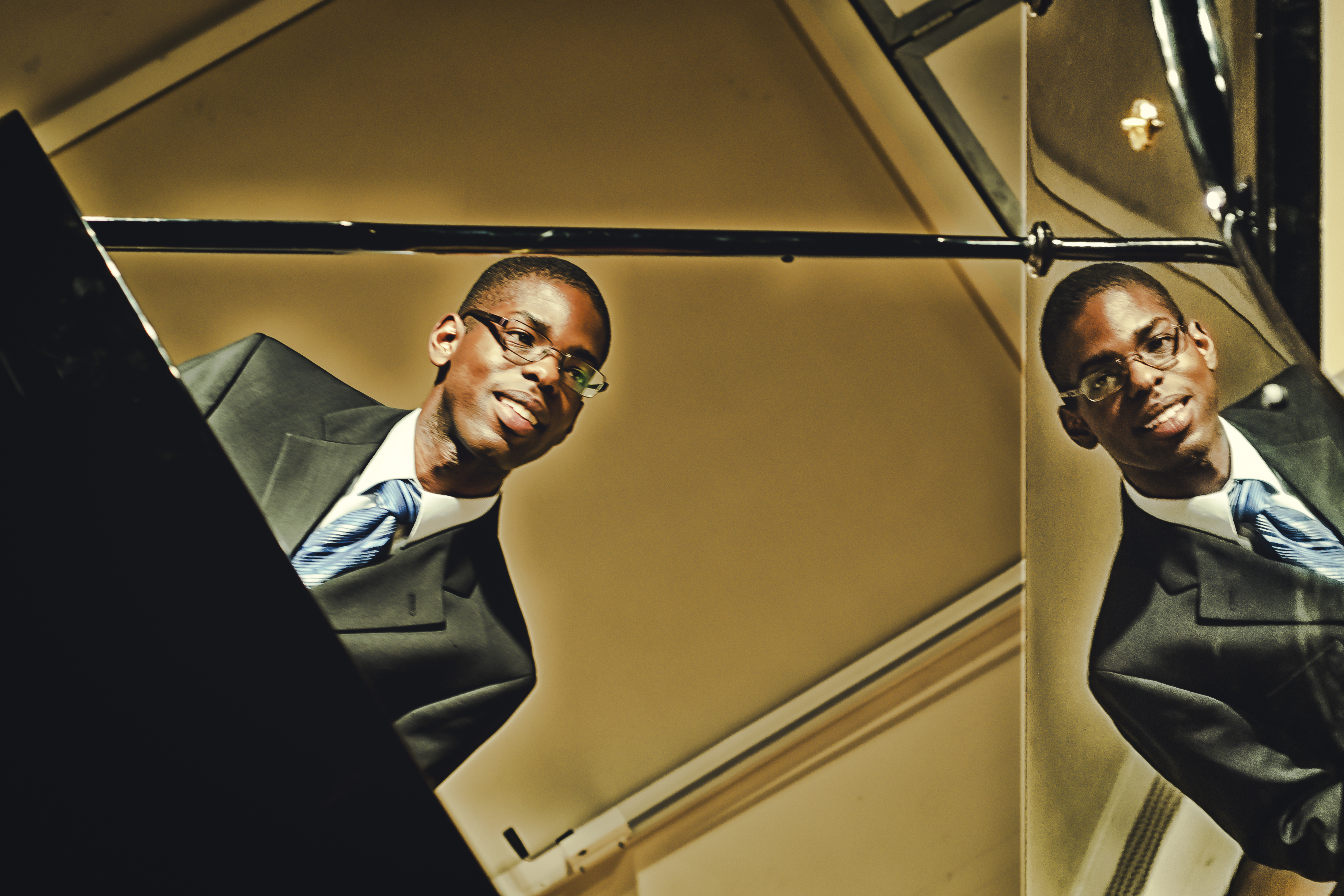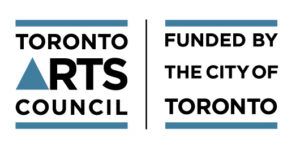From the moment we begin our journey through life, we are endlessly presented with choices. No matter how great or small the situation, the decisions we make are based on a number of criteria that often times impact our present and future: Who do I consider the most important people in my life? What will I study at university? Which schools should I apply to? Shall I enjoy an evening on the town, or relax at home and watch a movie? As we get older, the questions continue to evolve while increasing in seriousness: Do I accept this person as my life partner? Where would I like to call ‘home’? Which career path would I like to have, and how can I possibly get there?
Entering the professional world as a young musician, as is the case with many work industries, presents a gamut of choices. The reactions to this seemingly never-ending series of crossroads along the way serves as a constant reminder of the necessity to maintain balance and perspective. Several years ago, when I was studying piano at the university level, many of the choices that I encountered were both asked and answered on my behalf by my piano professor: What should I practice in time for the next lesson? When is my next performance? What repertoire am I to perform over the next season/school year? What edition of music do I prepare from? Which finger falls on any given note in any given passage?
My professor’s stern disposition seemed almost comical at the time – or at the very least heavily saturated in what I deemed to be obsessive-compulsive behaviour. What I failed to appreciate at the time was that my professor – himself a highly accomplished performer and pedagogue – had already understood, anticipated, and appreciated the plethora of choices that await any given musician at any moment. He often chastised several of us young and aspiring student musicians who giggled, mocked, and teasingly whispered whenever he explicitly laid out a series of ground rules and instructions before a performance: When to eat? What to eat? What to wear? When to warm up? How to warm up? When to bow? How to bow? Where to look? When to look?
 It is especially now, after entering the music industry as a professional, that I have appreciated beyond words the impact of choice. What seemed absurdly simplistic and nit-picky not so long ago, has become understood as yet another key ingredient to development. There is value in acknowledging that as a performing artist, it is most beneficial to prepare for – and enter – a performance with a clear game plan. The more studied and prepared a performer is, the more likely it is that they will achieve what they have set out to accomplish. Whenever possible, it is best to leave as little as possible to chance and circumstance since even the most minute of details become vital on stage. Naturally, many performing artists would be willing to concede that it is very unlikely to achieve whatever description they attribute to a “perfect performance”. By artistic definition, there can be no such thing. However, the more choices that the performer realizes is in front of him or her, and the more responses are prepared for these impending decisions, the greater the opportunity to maximize the experience.
It is especially now, after entering the music industry as a professional, that I have appreciated beyond words the impact of choice. What seemed absurdly simplistic and nit-picky not so long ago, has become understood as yet another key ingredient to development. There is value in acknowledging that as a performing artist, it is most beneficial to prepare for – and enter – a performance with a clear game plan. The more studied and prepared a performer is, the more likely it is that they will achieve what they have set out to accomplish. Whenever possible, it is best to leave as little as possible to chance and circumstance since even the most minute of details become vital on stage. Naturally, many performing artists would be willing to concede that it is very unlikely to achieve whatever description they attribute to a “perfect performance”. By artistic definition, there can be no such thing. However, the more choices that the performer realizes is in front of him or her, and the more responses are prepared for these impending decisions, the greater the opportunity to maximize the experience.
These choices do not necessarily get easier with time. To again use the student reference, the security blanket provided by a nurturing and attentive teacher negates having to deal with many probable choices: Do I continue to present the same music which I have played for a long time and am most comfortable performing in public, or is it more beneficial to prepare new works as often as possible (while risking security on stage) to expand my repertoire? Do I choose to play music which fits comfortably into my technical abilities, or should I challenge myself with works of greater technical and musical demand which I may/may not yet be ready for? Is it better to focus my repertoire based on composers and compositions that I like the best (with risk of being typecast/anointed as a ‘specialist’), or develop the largest and most varied selection of music possible? In most instances, these choices were already determined for me by my piano teachers. It was their idea both individually and collectively to carefully guide me down the musical path best suited to maximize my abilities. Their choices also provided me with the necessary skills to later assist me as a professional musician.
There are some very interesting variations in response to choices which separate many great musicians, and what I believe to be among the most consequential among musicians is repertoire selection. To (over)simplify the crux of this dilemma is whether it is better to choose music which displays his or her maximum abilities or rather select a programme which could best be described as “audience-friendly”. There have been several occasions in my own experience where I have attended recitals of extremely gifted musicians, yet by the end of the concert, my mind was so exhausted I likely was not able to process the entire experience. The endless flurry of virtuosity and technical wizardry exacerbated by the sheer volume of notes gave ample opportunity for the performer to demonstrate their prowess, yet somehow sheer barrage of notes proved to be a musical overload. The musical presentation appeared to be as much for their self-satisfaction – if not, decidedly more so – than an offering to the audience. On the other hand, it is impossible to know which repertoire will please which group of listeners. Well-performed, and emotionally connected, music to a receptive and appreciate audience is the goal – no matter how many or few notes are involved.
Ultimately, as this lifelong journey continues, the most significant rebuttal to our confrontation with choices is the one thing that cannot be taught: experience. As I continue to immerse myself in the performing arts, I am presented with many of the same issues today that I had as a student – many of which are outlined above. However, as I continue to grow and develop as a musician, I have learned to appreciate the evolution of my career as well. With these changing circumstances – for example, expanding my network by performing in new cities and countries around the world, engaging in social media, designating mid-recital moments to engage with audiences by introducing myself and the selected programme (as opposed to playing straight through a given programme and potentially speaking to those who remained afterwards) – a new array of choices constantly appear. With greater risk comes greater reward, and yet a calculated and thoughtful approach can yield maximum benefit. Is it worth it or necessary to continue heavily practicing for this upcoming lesson/concert even though I am feeling pain and discomfort in my hands? Should I accept this significant concert invitation or attend my special family event? Is it worth it to accept this performance opportunity which may not pay well – or at all! – now, but could potentially serve as a platform for more lucrative concert engagements in the future – whenever that may be? To me, it is truly incredible that people from all walks of life are met with remarkably similar choices – maybe disguised in varying appearance depending on where you are – and our individual and collective experience have a major impact on how we handle our choices.
Choices, choices…?






